#Rasmané Ouédraogo
Explore tagged Tumblr posts
Text



Moolaadé, 2003
8 notes
·
View notes
Text

Buud Yam, Gaston Kaboré (1997)
#Gaston Kaboré#Serge Yanogo#Amssatou Maïga#Colette Kaboré#Mariama Ly#Hyppolite Ouangrawa#Boureima Ouedraogo#Rasmané Ouédraogo#Joseph Yanogo#Jean Noël Ferragut#Michel Portal#Marie Jeanne Kanyala#Didier Ranz#1997
1 note
·
View note
Text
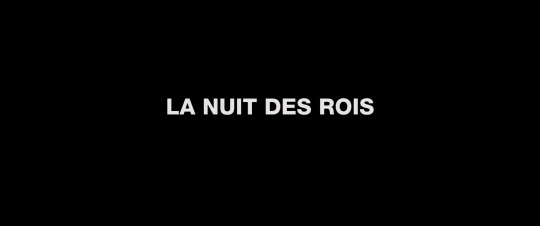

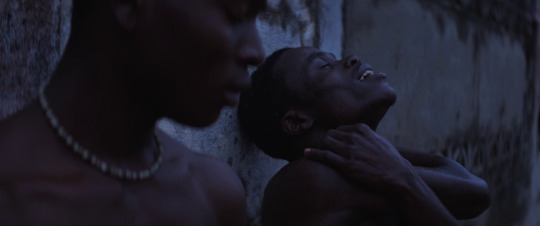
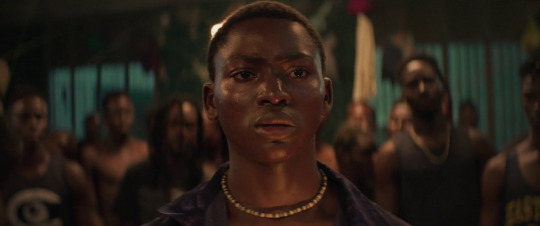
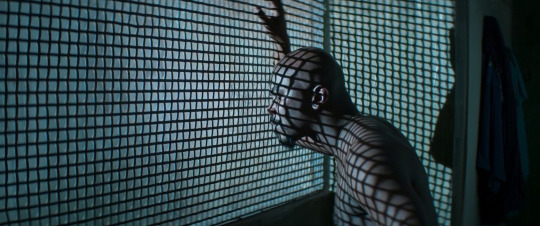
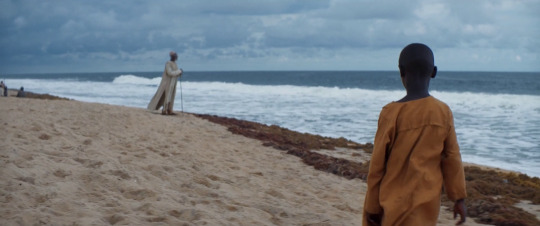

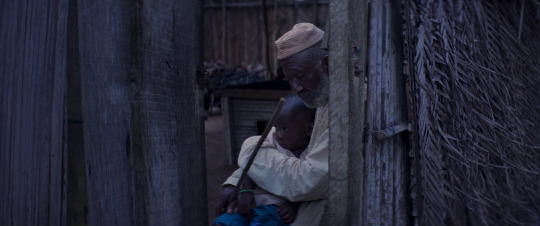


Night of the Kings (2020)
La Nuit des rois
Director - Philippe Lacôte, Cinematography - Tobie Marier Robitaille
"When your world is built of golden walls, you don't chase after dreams"
#scenesandscreens#night of the kings#La Nuit des rois#philippe lacôte#Tobie Marier Robitaille#bakary koné#Isaka Sawadogo#steve tientcheu#Gbazi Yves Landry#jean cyrille digbeu#Rasmané Ouédraogo#Abdoul Karim Konaté#Macel Anzian#laetitia ky#denis lavant#Denis Lavant#zunon françois lopez#Narcisse Aféli
324 notes
·
View notes
Text
Night of the Kings

Night of the Kings [trailer]
A young man is sent to "La Maca", a prison of Ivory Coast in the middle of the forest ruled by its prisoners. With the red moon rising, he is designated by the Boss to be the new "Roman" and must tell a story to the other prisoners.
What a unique setting, the story is surreal and a bit magical. At times it feels like a Shakespearean drama with a dying king.
#Night of the Kings#La nuit des rois#Bakary Koné#Steve Tientcheu#Jean Cyrille Digbeu#Rasmané Ouédraogo#Issaka Sawadogo#Laetitia Ky#Denis Lavant#Zunon François Lopez#foreign#Ivory Coast#like#recommended
8 notes
·
View notes
Photo

Night of the Kings
directed by Philippe Lacôte, 2020
#Night of the Kings#La Nuit Des Rois#Philippe Lacôte#movie mosaics#Abdoul Karim Konaté#Bakary Koné#Gbazi Yves Landry#Rasmané Ouédraogo#Traoré Aboubacar#Steve Tientcheu#Denis Lavant#Laetitia Ky#Issaka Sawadogo
5 notes
·
View notes
Text
La Nuit des Rois
Recensie La Nuit des Rois ★★1/2 - vanaf 3-2 te zien op @IFFR Een oorverdovend sterke opening, die overgaat in toneelspelende gevangenen, onder een rode maan. De eerder voelbare dreiging ebde daardoor helemaal weg! #IFFR #IFFR2021 #LaNuitdesRois
De dramafilm La Nuit des Rois (Night of the Kings) gaat over een jongeman die een hele gevangenis aan zijn lippen moet krijgen met een boeiend verhaal. Lukt hem niet tijdens de rode maan, dan wacht de dood. Wat wij van La Nuit des Rois vinden, lees je in onze recensie. Continue reading

View On WordPress
#Abdoul Karim Konaté#Anzian Marcel#Digbeu Jean Cyrille#dramafilm#IFFR#IFFR 2021#Issaka Sawadogo#Ivoorkust#Koné Bakary#La Nuit des Rois#Night of the Kings#Philippe Lacôte#Rasmané Ouédraogo#review#Steve Tientcheu
0 notes
Video
tumblr
"Moolaade" is the kind of film that can only be made by a director whose heart is in harmony with his mind. It is a film of politics and anger, and also a film of beauty, humor, and a deep affection for human nature. Usually films about controversial issues are tilted too far toward rage or tear-jerking. Ousmane Sembene, who made this film when he was 81, must have lived enough, suffered enough and laughed enough to find the wisdom of age. I remember him sitting in the little lobby of the Hotel Splendid in Cannes, puffing contentedly on a Sherlock Holmes pipe that was rather a contrast with his bright, flowing Senegalese garb.
His film is about, and against, the custom of female circumcision, practiced in many Muslim lands (although Islamic law forbids it). Does that make you think you don't want to see it? Think again. Sembene embodies his subject so deeply with his characters, and especially with his heroine Colle, that it becomes a story about will, defiance, and ancient custom.
It is never actually too specific about what would be done to the four girls who flee to Colle for moolaade, or protection. Sembene trusts us to know. He doesn't exploit blood-drenched horror scenes, and his approach is actually more effective because he limits himself to off-screen cries, or a brief glimpse of the knife used by the village's doyenne des exciseuses, the woman in charge of circumcisions. The knife is very small, wickedly hooked, hardly seen, and more frightening than a broadsword. Yet we learn that women support the removal of the clitoris because no man will marry a bride who has not been "cut." The actress Fatoumata Coulibaly, who plays Colle, has said that she herself was circumcised; the result, as with most victims, was an absence of sexual pleasure, and often pain during sex.
Why would a man insist on this mutilation? Perhaps out of deep insecurity and a distrust, even fear, of women. But "Moolaade" makes no such sweeping charges, and observes how the women themselves enforce and carry out the practice -- because, of course, they want their daughters to find husbands.
Colle has refused to let her own daughter be cut, but now the girl is engaged to a man returning home from France. Will Europe have freed him of ancient barbarities, or will he demand a bride who has been cut? Since the village hopes for wealth from the returning man, there is social pressure on Colle. And just at that moment, the girls on the brink of adolescence run weeping to Colle and beg for shelter in the compound she shares with her husband and his other wives.
Colle evokes moolaade. She ties a string of yarn across the doorstep of her house, and the law says that as long as the girls stay inside, no one can enter after them. Her husband is enraged. He loses status in the village council because he cannot control his woman, but his Number One Wife supports Number Two, and he is stalemated. One of the themes coiling beneath the surface of the film is that the women in this society have great power, if they are bold enough to exercise it.
Another theme is suspicion of the West, of modernization, of the outside in general. One of the ways groups create their identities is by enforcing costume rules that conceal individuality and impose a monolithic look. Uniforms are a way of saying that those who wear them are interchangeable. One who is obviously an outsider is le mercenaire, the itinerant peddler who visits the village to sell pots and pans, postage stamps, T-shirts and toys, and to pick up and deliver mail. He has a lively eye for pretty women, suggests secret rendezvous, and in general ignores the code that a woman belongs to a man.
Among the most important items in his stock are batteries, needed for portable radios and flashlights in this district without electricity. The radio stations are in the cities, and broadcast words and music reflecting dangerous freedoms. When the frustrated all-male village council meets to ponder the challenge of Colle and moolaade, it doesn't occur to them, of course, that women might have perfectly good reasons for not wanting to be circumcised. They blame the outside. The radios. They order a sweep of the village to confiscate all the radios, which are deposited in a big pile, some of them still turned on. This pile becomes a central image of the film, and inevitably evokes bonfires of hated books, or videos, or rock 'n' roll, or people.
The construction of Sembene's film is subtle and seductive. He spends little time denouncing female circumcision, and a great deal of time studying the human nature of dissent and conformity. There is humor in the paradoxes that the men debate, and in their impotence against their women, and suspense when the prodigal son returns from Paris. On the most fundamental of levels, this is an entertaining film. Also a beautiful one, as we admire the artistry of the architecture, and appreciate how the people of the village live within the rules and respect them, even when opposing them. These people, despite some of their practices, are deeply decent and civilized, and Sembene loves them for it. The movie contains less outrage than regret.
Sembene's death at 84, on June 9, 2007, brought to a close an extraordinary life, one that parallels in some ways Nelson Mandela's. Neither was born into wealth and privilege, and both achieved greatness. Although he was known for years as "the father of the African cinema," and wrote six novels before he decided films would reach a larger audience, Sembene as a young man (I learn from IMDb.com) was a mechanic, a bricklayer, a soldier for the Free French, a labor leader, an autoworker and a stevedore. His first novel came in 1956, his first movie ("Black Girl") in 1966.
That film told the story of the ill treatment a young Senegalese woman finds when she goes to work as an au pair in Paris. But Sembene did not devote himself to dramatizing the evils of whites against blacks on his continent. He was more interested in drama, conflicts and comedy within the vibrant African civilization.
Consider his wonderful film "Guelwaar" (1992). In his country, Muslims live side-by-side with Catholics, and his story involves a mix-up that accidentally results in the burial of a Catholic body in a Muslim cemetery. When an attempt to move the body is made, the Muslims are outraged -- not because the body is there, but because the removal would desecrate the cemetery. A local policeman, himself a Muslim, tries to defuse the situation and prevent a nasty fight.
This story could involve stereotypes and fan the flames of prejudice. But not with Sembene. He portrays all the characters as people who are reasonable, by their own lights, and would be content with a solution that did not violate their beliefs. And all religions contain a fuzzy area that allows common sense to sometimes win over dogma. All it takes here is a persuasive policemen, and some wise people on both sides who are weary of the hotheads.
Sembene's work so often dealt with his society from the inside, with sympathy, insight, and the sly wit of a Bernard Shaw. He made political films that didn't seem political, and comedies that were very serious. His regret was that many of his films, including "Moolaade," were not welcome in Africa. He won awards at Venice, Karlovy Vary and many other important festivals; "Moolaade" won first place in the Un Certain Regard section at Cannes. But according to IMDb, the film has played nowhere in Africa except Morocco. The message is not heard where it is needed.
Ousmane Sembene was born into an Africa where a black man was not expected to write novels or direct films. He dedicated his life to making brave and useful films that his continent needed to see. He did that even knowing they would probably not be seen. They exist. They wait. They honor his memory.
Note: Most of Sembene's films are available on DVD
#africa#senegal#ousmane sembene#moolaade#fatoumata coulibaly#maimouna hélène diarra#salimata traoré#dominique zeïda#mah compaoré#aminata dao#rasmané ouédraogo#ousmane konaté#bakaramoto sanogo#modibo sangaré#joseph traoré#théophile sowié#habib dembélé#gustave sorgho#cheick oumar maiga#sory ibrahima koïta#aly sanon#moussa sanogo#naky sy savane#stéphanie nikiema#marie yameogo#mabintou baro#tata konaté#fatoumata sanogo#madjara konaté#fatoumata konaté
0 notes
Text
LA NUIT DES ROIS by Philippe Lacôte
Set in the Ivory Coast heart, there is La Maca, a prison governed by the prisoners themselves. Lacôte's film focuses essentially on the theme of power as an inseparable form of relationship with the other. La Maca in this film becomes the theatre of a fight for power.

A young new prisoner, Roman interpreted by Koné Bakary: the protagonist of this story is in charge as storyteller during the last night of the blood full moon, not knowing that this will end in his own death. To stay alive, he soon understands that his story has to entertain all the other prisoners until sunrise. By doing so, Roman, through his cunning, will address the doom and change the tradition. So Roman begins the storytelling about a fellow criminal in the slum of Abidjan, Zama King, and how he was driven to his death.
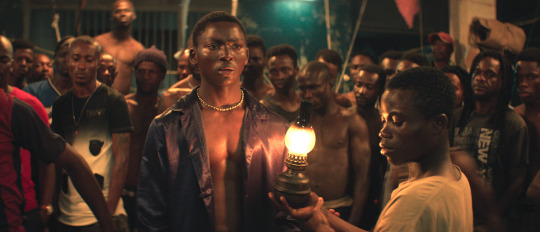
In this film, we are eye opened to the violence that dominates the daily life of Abidjan. Zhama was a genuine character, tortured, burned and killed by the population. They did not find his body. Roman's sometimes improvised story, which also bears witness to an ancient tradition of themes belonging to the culture of the griots, from whom he descended, highlights above all the drama of the country's daily life, embroidered with bloody scenarios of typical civil war clashes. Zhama, through the myth of the clash for power between an ancient queen and her younger brother, speaks of the political/social context of his country, where the dictator Gbagbo got arrested by the republican military forces, and of the games of power set inside the prison. Where another struggle for succession is taking place. He portrays the battle between the queen and her brother in a fantastic and almost virtual way: a clash that takes place through the use of special effects, without blood or victims.
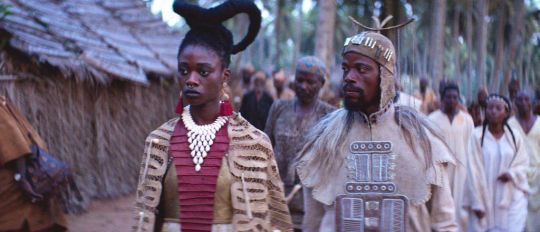
A tribute to the African culture that is steeped in and is never the basis of Shakespearean dramaturgy and Western arts. In this superb African film, we find both oral tradition, themes and dramatizations, both ancient and contemporary, amalgamated in a timeless dimension. The magnificent locations and sets also captivate the viewer, which is so authentic that the immersion in the setting is almost total.
Once again, we discover that African cinema can be profoundly theatrical. The narration of the protagonist's story, improvised on the spot, is suspenseful, intense and involving. It is reminiscent of the muddy, conflict-ridden setting of the class struggles of Quai Ouest (1985), a youthful text by Bernard Marie Koltès, where the protagonists are those of the urban subculture struggling in a battle for survival, as the case with our protagonist.
Director: Philippe Lacôte
Actors: Koné Bakary, Steve Tientcheu, Rasmané Ouédraogo, Issaka Sawadogo, Digbeu Jean Cyrille
Country: France/Ivory Coast/Canada/Senegal
Year: 2020
Length: 93 Min.
Ita —>
Nel cuore della foresta della Costa d'Avorio, c'è La Maca, una prigione governata dai prigionieri stessi. Il film di Lacôte è incentrato essenzialmente sul tema del potere come forma inscindibile di relazione con l'altro. La Maca in questo film diventa il teatro di una lotta per il potere.
Un giovane nuovo prigioniero, Roman interpretato da Koné Bakary, il protagonista di questa storia è incaricato di essere il narratore durante l'ultima notte di luna piena di sangue, senza sapere che questo finirà con la sua stessa morte. Per rimanere vivo, capisce presto che la sua storia deve intrattenere tutti gli altri prigionieri fino all'alba. Così facendo, Roman con la sua astuzia affronterà il destino e cambierà la tradizione. Così Roman inizia a raccontare la storia di un compagno criminale nella baraccopoli di Abidjan, Zama King, e di come è stato condotto alla morte.
In questo film, ci viene aperto l'occhio sulla violenza che domina la vita quotidiana di Abidjan. Zama era un personaggio reale che è stato torturato, bruciato e ucciso dalla popolazione, il suo corpo non è mai stato trovato. La storia a tratti improvvisata di Roman, che sa farsi anche testimone di una tradizione antica di temi appartenenti alla cultura dei griot, dai quali discende, evidenza soprattutto il dramma in cui vive il quotidiano del Paese, ricamato da scenari sanguinosi di scontri tipici da guerra civile. Il cantore, attraverso il mito dello scontro per il potere tra un’ antica regina e il fratello minore, parla del contesto politico/sociale del suo Paese, dove il dittatore Gbagbo è stato arrestato dalle forze militari repubblicane, nonché dei giochi di potere all’ interno della prigione dove, oltretutto si sta avverando un’altra lotta per la successione. La battaglia tra la regina e il fratello viene rappresentata in modo fantastico e quasi virtuale: uno scontro che si consuma esclusivamente attraverso l’uso di effetti speciali senza sangue e senza vittime.
Un omaggio alla cultura africana che è intrisa e che comunque è alla base della drammaturgia shakespeariana e delle arti occidentali. In questo superbo film africano troviamo riassunti sia la tradizione orale, i temi e le drammatizzazioni sia antiche che contemporanee amalgamati in una dimensione atemporale. Lo spettatore inoltre viene affascinato dalle magnifiche location e dalle scenografie che sono estremamente accurate e autentiche da far sì che l’immersione nell’ambientazione sia quasi totale.
Ancora una volta scopriamo che il cinema africano sa essere profondamnte teatrale, la narrazione del racconto del protagonista, improvvisata sul momento è carica di suspence, intensa e coinvolgente. Ricorda a tratti l’ambientazione fangosa e conflittuale delle lotte di classe di Quai Ouest (1985), testo giovanile di Bernard Marie Koltès, dove i protagonisti sono quelli della subcultura urbana che lottano in una battaglia per la sopravvivenza come accade per il nostro protagonista.
Regia: Philippe Lacôte
Attori: Koné Bakary, Steve Tientcheu, Rasmané Ouédraogo, Issaka Sawadogo, Digbeu Jean Cyrille
Pease: Francia/Costa D’Avorio/Canada/Senegal
Anno: 2020
Durata: 93 Min.
#the night of the kings#lanuitdesrois#philippe lacôte#kone bakary#film#films#cinemathography#mostradelcinema#africa#mito#mitologia#narrazione#lamaca#ivorycoast#prison#prisoners#venezia77#biennalecinema#biennale cinema
2 notes
·
View notes
Photo

Abdoulaye Komboudri une légende vivante du cinéma Africain ! Abdoulaye Komboudri dit « Fils de l’homme » est né le 3 mai 1959 à Koudougou au Burkina Faso. « Fils de l’homme » est l’un des acteurs majeurs du cinéma burkinabè. Aucun rôle ne lui résiste, faisant de lui un acteur complet. Il a joué dans de nombreux films, tout comme Rasmané Ouédraogo dit RASO, il est fastidieux de dresser une filmographie complète de cet acteur. Néanmoins essayons et surtout excusez du peu l’artiste : 👉🏾Desebagato 👉🏾Sababu 👉🏾Zan Boko 👉🏾Toungan 👉🏾Samba Traoré 👉🏾Laafi (Tout va bien) 👉🏾Yeelbedo (Le prix du méfait) 👉🏾Mami Wata 👉🏾Tourbillon 👉🏾Une couleur café 👉🏾Keïta, l’héritage du griot 👉🏾Le rêve du python 👉🏾L’épopée des Moosé 👉🏾Nous sommes tous responsables 👉🏾Silmandé 👉🏾Siraba 👉🏾Haramuya-Wendemi (L’enfant du bon Dieu) 👉🏾Maï deux maris ou la polyandre 👉🏾Bayiri 👉🏾Le poids du serment 👉🏾Delwendé lève-toi et marche 👉🏾Une femme pas comme les autres 👉🏾Le monde est un ballet 👉🏾Yango 👉🏾Si longue que soit la nuit 👉🏾Le pardon 👉🏾Puuk Nin 👉🏾Un certain matin 👉🏾Garba 👉🏾Julie et Roméo 👉🏾Gorel 👉🏾Ça bouge 👉🏾Ma ga al darhan 👉🏾Mouka 👉🏾Célibatorium 👉🏾Sita 👉🏾Vis-à-vis 👉🏾A nous la vie… Abdoulaye Komboudri est concepteur et réalisateur de spots publicitaires et de sensibilisation, il fait aussi du thèâtre. Au titre des Distinctions : 👉🏾Prix du meilleur comédien (Laafi) à la 12ème édition du FESPACO en 1991. 👉🏾Prix du meilleur second rôle dans Silmandé (Winner Lauréat) All Africa film awards 98 Afrique du Sud. 👉🏾Chevalier de l’ordre du mérite des Arts, Lettres et de la Communication : agrafe cinématographie Abdoulaye Komboudri parle français, dioula, mooré, peulh, haoussa. https://www.instagram.com/p/CPSpYCoHhqf/?utm_medium=tumblr
0 notes
Text
Election présidentielle de 2020 : Le député Rasmané Sawadogo soutient Kadré Désiré Ouédraogo
Election présidentielle de 2020 : Le député Rasmané Sawadogo soutient Kadré Désiré Ouédraogo
Le député de la province du Sanmatenga du Congrès pour la démocratie et le progrès (CDP), Rasmané Daniel Sawadogo , a animé, le mardi 4 juin 2019 à Kaya, une conférence de presse pour évoquer sa démission du poste de secrétaire chargé à l’organisation des travailleurs, du patronat et du dialogue social du Bureau politique national (BPN) du parti de l’ex-président Blaise Compaoré.
«Je n’ai pas…
View On WordPress
0 notes
Text
Burkina Faso : "Nous avons failli", regrette Rasmané Ouédraogo, témoin du putsch du CND
Burkina Faso : “Nous avons failli”, regrette Rasmané Ouédraogo, témoin du putsch du CND
View On WordPress
0 notes
Text
NAFA : après la présidence, Rasmané Ouédraogo quitte le parti
L’on se rappelle. Dans une lettre datée du 12 septembre 2017, Rasmané Ouédraogo, président de la Nouvelle alliance du Faso (NAFA), avait annoncé sa démission de son poste de président de la Nouvelle Alliance du Faso (NAFA). « Je souhaite plus que tout, partager, voir pousser et grandir l’arbre que nous avons planté ensemble et je…
View On WordPress
0 notes
Photo
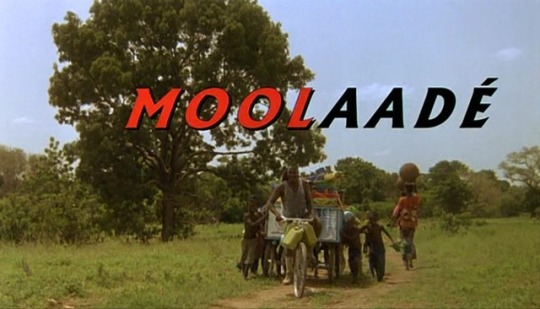

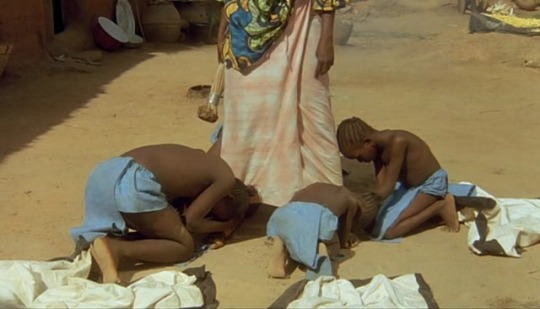

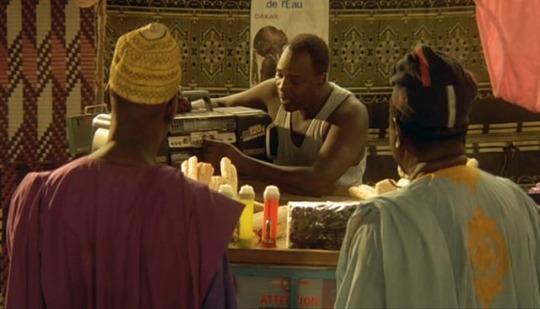
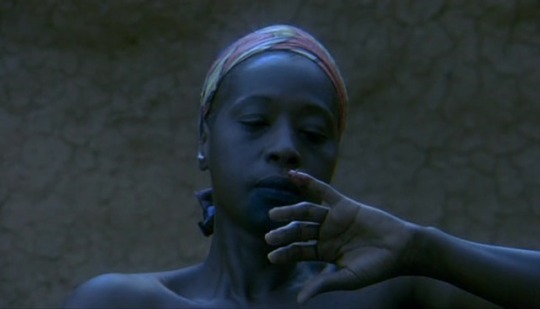
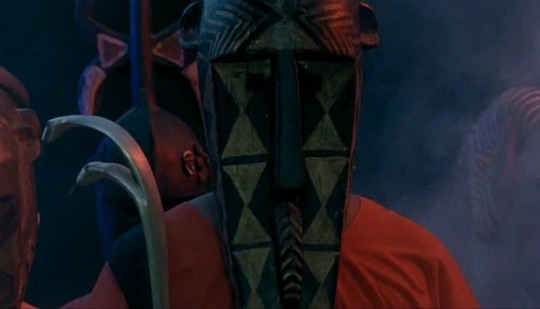
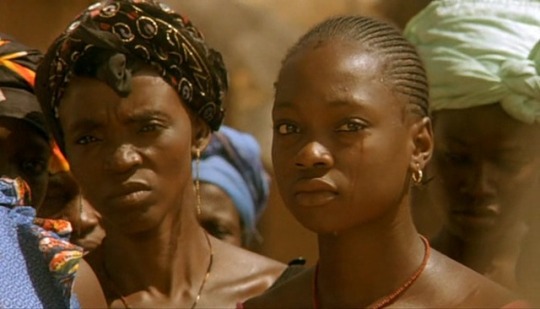
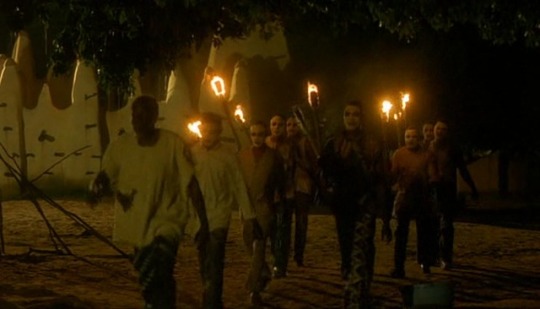
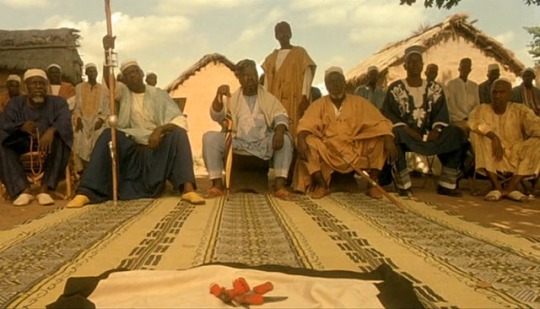
Moolaadé (2004), Director - Ousmane Sembene, Cinematography - Dominique Gentil "It takes more than a pair of balls to make a man." story about the scourge of female genital mutilation and a woman who rallied her village to fight it
#scenesandscreens#ousmane sembene#moolaadé#moolaade#Fatoumata Coulibaly#Maimouna Hélène Diarra#Salimata Traoré#Dominique Zeïda#Mah Compaoré#Aminata Dao#Rasmané Ouédraogo#Ousmane Konaté#Bakaramoto Sanogo#Modibo Sangaré#Joseph Traoré#Théophile Sowié#Habib Dembélé#Mariama Souabo#Mamissa Sanogo#Lala Drabo#Assita Soura
428 notes
·
View notes
Text
*NAFA: le président Rasmané Ouédraogo démissionne
*NAFA: le président Rasmané Ouédraogo démissionne
La Nouvelle alliance du Faso (NAFA) n’a plus de président depuis le 12 septembre 2017. En effet, Rasmané Ouédraogo qui dirigeait le parti depuis sa création en 2015, a rendu le tablier. Les raisons de cette décision sont expliquées dans la lettre que voici, qui semble avoir surpris bien des observateurs.
Chers camarades, amis, sœurs et frères,
Depuis la création de nôtre parti, j’ai eu la…
View On WordPress
0 notes
Text
Affaire Djibrill Bassolé : : la NAFA dénonce une « instrumentalisation politique »
Affaire Djibrill Bassolé : : la NAFA dénonce une « instrumentalisation politique »
Ceci est un communiqué de la Nouvelle Alliance du Faso (NAFA) sur l’état de santé de Djibrill Bassolé. Rasmané Ouédraogo, président du parti, exige, entre autres, une évacuation sanitaire du Général et accuse le parti au pouvoir, le MPP, de s’immiscer dans la gestion de ce dossier.
«��Suite aux informations persistantes sur la fragilisation progressive de l’état de santé et les manœuvres de…
View On WordPress
0 notes